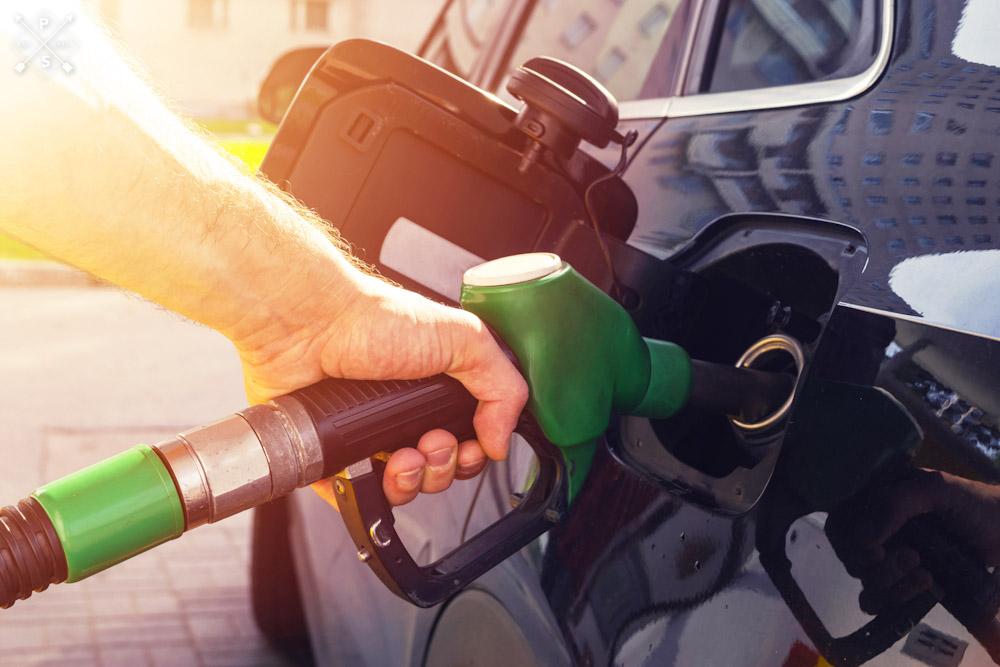
Each of us presented with the same choice at the gas station when go to refill the car: will we reach for the black pump that typically signifies gasoline or are we reaching for the green pump that provides diesel? Now, once we realize that our vehicle has a certain kind of engine that can only process one type of fuel, the “choice” is really not a choice at all; if we want our car to be able to pull out of the stall and back on to the road, we’ll inject the correct type into our gas tanks.
Knowing something is the case and knowing why something is the case are two separate things, naturally. The differences between gasoline and diesel are more than one being suitable for trucks while the other is suitable for coups; how the engine processes the fuel, the inherent benefits and deficiencies of both, are all part of the story that is diesel vs. gasoline. These differences are certainly important when bringing your vehicle into the West Valley Master Muffler for car repairs. Let’s take a look at the propellant of our cars and learn what lies behind that big green pump.
The Engines
The Gasoline Engine
The modern internal combustion engine was first patented in 1858 by a Belgian man living in Paris by the name of Jean Joseph Etienne Lenoir. His design, and subsequent iterations, became world-famous, eventually grabbing the attention of a German traveling salesman named Nicolaus Otto. Fascinated by Lenoir’s work, Otto attempted to create a replica of the engine. It was during this process that he came to realize the importance of compressing the fuel (a substance, at the time, called coal gas — a fuel made by heating coal to extreme temperatures in a sealed and airless compartment) before the eponymous combustion took place.
By 1876, after much experimentation, Otto created the first gasoline engine that compressed gasoline and air to burn fuel more efficiently.
- The improvement of the engine’s carburetors helped improve the quality of the gasoline from the coal gas hydrocarbons that burned hot but only utilized roughly 10% of the fuel to power the vehicle.
- By the turn of the 20th Century, the gasoline we know today was beginning to be made from crude oil thanks to new processing techniques.
The Diesel Engine
Just two years after the creation of the Otto engine, a German engineer by the name of Rudolf Diesel was sitting in a lecture in school; the topic: the low conversion rate of gasoline into energy by modern engines. Diesel found it curious that only 10% of the fuel was being used while everything else was simply burning off. He posited that an engine could be created that wouldn’t need a sparkplug to ignite a fuel-air mixture, but rather could compress the air in the chamber to such a high temperature that it would ignite the fuel that is injected spontaneously.
By 1893, the first prototype of the diesel engine was created, with iterations coming every few years. Today, car repair professionals know the diesel engine to be a highly efficient piece of machinery, providing enough power in a 6-liter engine as the amount of gasoline found in an 8-liter Otto engine.
The Curious Superiority of Diesel
But why is diesel considered to be so much more efficient than gasoline and why can’t all cars run on diesel? On paper, it seems clear that diesel is far superior.
- Both gasoline and diesel start out as crude oil but are processed differently. Diesel fuel is thicker, which means that it is denser than normal gasoline and it evaporates slower.
- Diesel engines have more torque, which means a better fuel economy.
- Car repair technicians like those in the West Valley Master Muffler know that diesel engines typically burn their fuel cleaner, with fewer emissions, and last longer.
As is typical for all business decisions made in the world, the reason for favoring gas-burning engines in light of the apparent superiority of diesel comes down to money. For diesel engines to perform as well as they are capable, a lot of money and expertise must go into their creation. There is also the consumer to think about; diesel fuel costs more upfront and drivers prefer to spend less at the pump each time they go (though they are ultimately spending more on return trips). By making cars that use gas engines, auto manufacturers can make cars more cheaply and have consumers spending more on gasoline, which undoubtedly makes the oil industry happy.
Car Repairs For Your Engine
Regardless of what you’re driving, Master Muffler — and more specifically our West Valley car repair center — is adept at keeping your engine running pristinely. If you are worried that your fuel efficiency has been in decline, or it is simply time for another tune-up, come in today and we’ll get you sorted out.
Related Posts
Key Takeaways On average, passenger vehicle tires last 40,000 to 60,000 miles, depending on type, driving habits, and maintenance. Replace tires when tread depth reaches 2/32”, if damaged, or older than 10 years. Regular rotation, alignment, and proper inflation extend tire life. Aggressive driving, poor roads, and harsh weather shorten tire lifespan. Take advantage [...]
When you think about car maintenance, you probably focus on oil changes, tire rotations, and maybe even brake pad replacement. But what about your brake fluid? If you’ve ever wondered, “What does brake fluid do?” or “Why is brake fluid important?”, you’re not alone. Brake fluid might not be the most talked-about part of [...]
Is that high-pitched squeal from your brakes driving you—and everyone else—crazy? Don’t ignore it. Squeaky brakes aren’t just annoying, they’re your car’s way of saying something needs attention. Whether you're cruising through Salt Lake City or winding up Idaho’s mountain passes, here’s what’s likely going on, how you can fix it, and when it [...]





